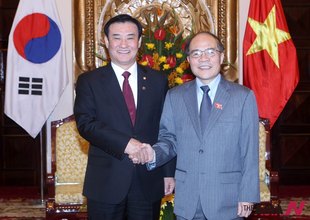Turkey school system is based on 4(primary school)+4(middle school)+4(high school), and the university is in two-year, four-year, and six-year program. In Turkey, all education costs are free for 12 years of elementary, middle, and high school, and textbooks are also provided free of charge. In other words, primary, middle, and high school education is compulsory in Turkey.
For elementary and middle school, a student enters the school near their house, and the test is unneeded. However, students have to take the entrance exam in order to enter high school. Furthermore, elementary, middle, and high school are all coeducational, and there are no girls’ schools like in Korea or the United States. In elementary schools, children over 66 months old can be admitted.
Starting from middle school, students need to wear school uniforms, and female students are allowed to wear pants. This is because women are given relatively equal rights as Turkey is an Islamic country while it adopts secularism.
In Turkey, students learn English as a foreign language, and they get English education starting from fourth grade in elementary school. Schools do not teach students other foreign languages besides English.
High schools in Turkey are mainly divided into four: regular high school, science high school, technical high school, and special purpose high school. Mostly, many excellent students enter science high school and special purpose high school. Therefore, in Turkey, one can easily find a scene where students in the third or fourth year of middle school are preparing for the entrance exam. Middle school students choose a high school based on their aptitude and academic performance and take their entrance exam. In particular, there are often students who take the test again to enter the school they want. In my case, I graduated from a science high school, and I often stayed up all night studying during my middle school years. However, unlike Korea, words such as ‘examination hell’ cannot be found in Turkey as most students do not feel stressed about studying.
Although Turkey is an Islamic country, schools do not offer Muslim education to the students. However, schools teach basic ethics and morality needed as a citizen by ‘religious culture and ethics’ subject.
In Turkey, scholarships are given to students with good grades starting from middle school. Since education costs are free, scholarships are mostly used as student allowances. Students who receive scholarships buy books, give money to their parents or sometimes use the money to party with their friends.
In Turkey, a high school graduate can join a company of his or her choice without discrimination. When it comes to employment, individuals do not think they are a failure unless they go to a certain company. Therefore, going to top-ranked school is less important in Turkey compared to Korea and other countries.
Turkish people are proud that the schools teach the students that real success comes only when personal development contributes to society or national development. Currently, Hizmet schools, which teach elementary, middle and high schools in more than 150 countries around the world, are becoming a good model. Rainbow school in Korea and Horizon school in Vietnam are similar to this.
By Alpago Sinasi





